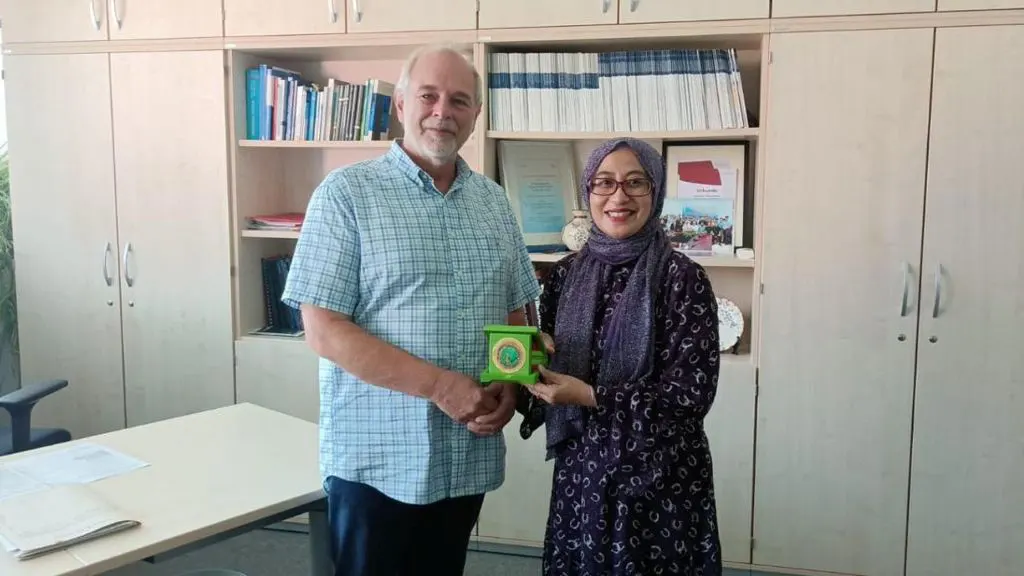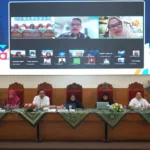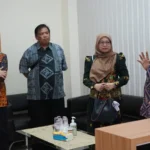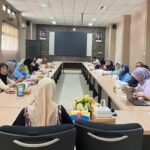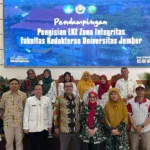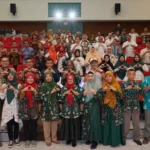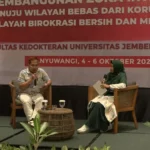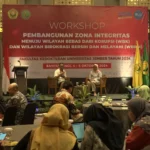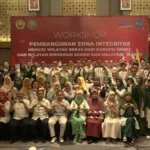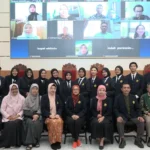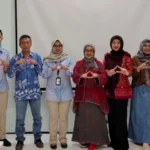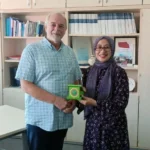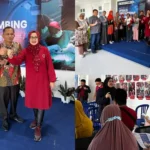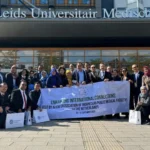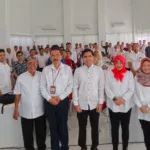Agromedicine – In an effort to broaden international cooperation, a delegation from the University of Jember, comprising members from the Faculty of Medicine, Faculty of Mathematics and Natural Sciences (MIPA), and Faculty of Dentistry (FKG), visited the Robert Koch Institute (RKI) in Germany. This visit was led by Prof. Kartika Senjarini from the Faculty of MIPA UNEJ. The goal of the meeting was to strengthen ties between Universitas Jember and RKI, particularly in the fields of health and scientific research.
During the visit, the delegation was warmly welcomed by Professor Thomas Bock, a virologist and head of the “Viral Gastroenteritis and Hepatitis Pathogens and Enterovirus” division at the Department of Infectious Diseases at RKI. The meeting marked a strategic first step toward future collaborations between the two institutions. One of the key items on the agenda was the discussion of a Memorandum of Understanding (MoU) between Universitas Jember and the Robert Koch Institute.
Professor Bock provided Universitas Jember with an MoU template as a preliminary guide for reviewing the points that will form the basis of the collaboration. It is hoped that this MoU will be finalized soon, serving as a foundation for broader cooperation in various scientific fields. This represents a significant opportunity for Universitas Jember to expand its collaboration with one of the world’s leading research institutions.
The Dean of the Faculty of Medicine, Universitas Jember, Dr. dr. Ulfa Elfiah, M.Kes., Sp.BP-RE., Subsp.LB.L. (K), also participated in the discussions. She engaged directly with Professor Bock about potential collaborations between the Faculty of Medicine and RKI, focusing particularly on virology and infectious disease research.
Dr. Ulfa Elfiah noted that some of the collaboration opportunities proposed by Professor Bock include student and lecturer exchange programs, as well as opportunities for continued studies at the Master’s and PhD levels at RKI. These exchange programs are expected to enhance the competencies of students and faculty members at FK UNEJ in research and global medical science.
Additionally, Professor Bock proposed research collaborations on several important topics. Beyond research related to tropical diseases—an area of expertise for Universitas Jember—RKI offered collaboration on polio, public health, antibiotic epidemiology, and other global health issues. These topics are expected to serve as the foundation for joint research that can yield significant benefits for both institutions.
The visit also opens up broader collaboration opportunities not only for the Faculty of Medicine but also for the Faculties of Mathematics and Natural Sciences and Dentistry. RKI’s extensive expertise in various health sciences and related natural sciences can foster cross-disciplinary research involving all faculties at Universitas Jember.
The MoU is expected to cover not only research but also the development of internationally based educational programs aimed at enhancing Universitas Jember’s academic reputation on the global stage. Through this collaboration, FK UNEJ hopes to take on a more active role in the global health community.
During the visit, the Universitas Jember delegation also showcased key programs from each faculty. The Faculty of Mathematics and Natural Sciences, for instance, presented its research potential in biotechnology and health sciences, which could synergize with RKI’s expertise in infectious disease research. The Faculty of Dentistry highlighted its public dental health programs, which align with the global health issues studied by RKI.
Universitas Jember hopes this visit marks the beginning of a broader and more sustainable network of collaboration with world-leading research institutions. The partnership between Universitas Jember and RKI is expected to serve as a model for cross-country collaboration focused on research and developing solutions to global health problems.
With support from Professor Bock and the Robert Koch Institute, this collaboration will benefit not only the academic development of Universitas Jember but also the wider community through scientific contributions to global health.
Looking forward, Universitas Jember is committed to expanding its international cooperation network to enhance the quality of education, research, and community service. With strengthened ties to global institutions like RKI, Universitas Jember is optimistic about its capacity to contribute to solving pressing global health challenges.
Authors: AKR and NWK

